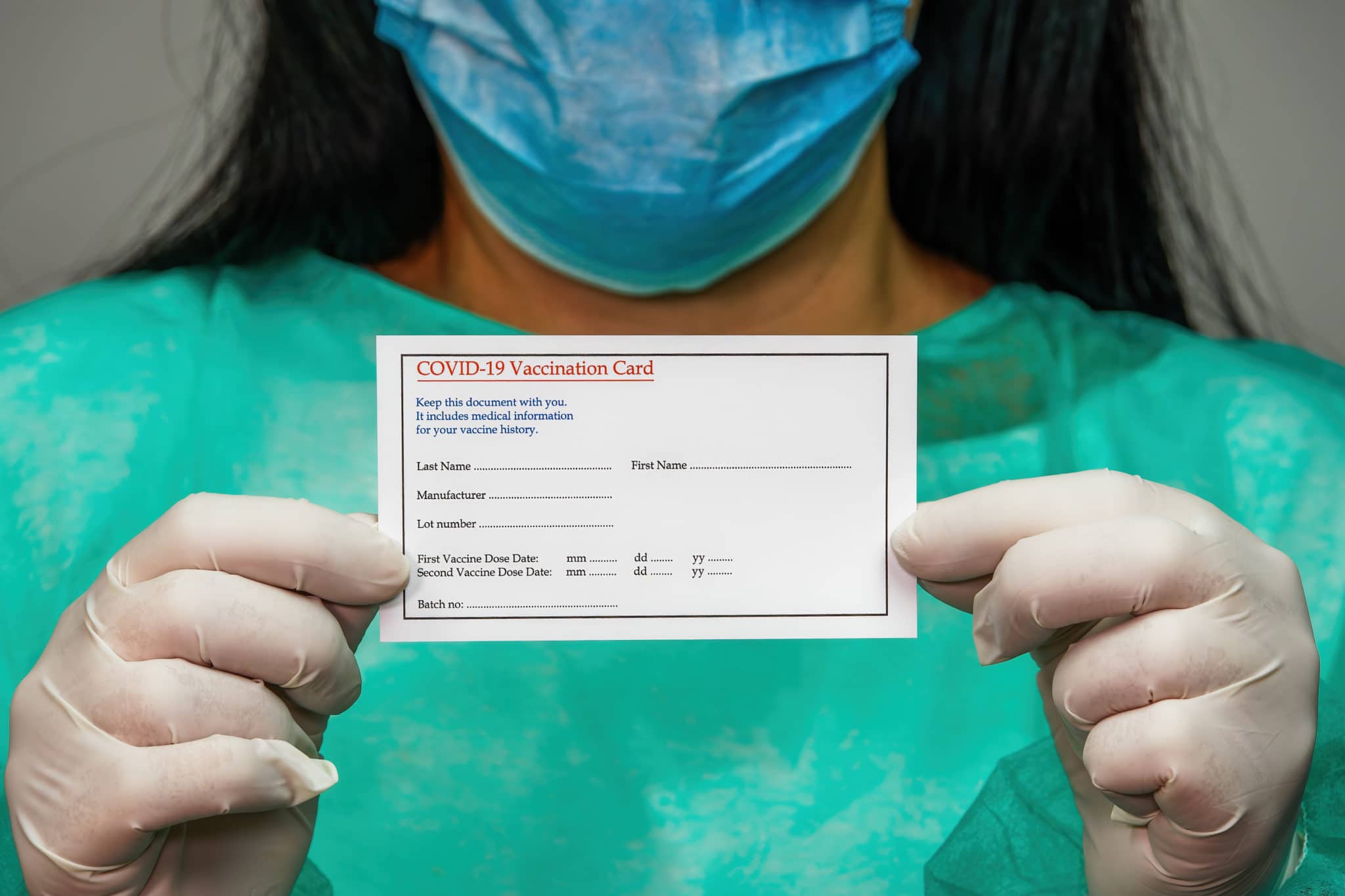
Against a backdrop of increased counterfeiting of COVID-19 documents, Dr Paul Dunn, Chair of the International Hologram Manufacturers Association looks at a new project in Asia to secure the authentication of vaccination cards.
Counterfeiting remains a multi-billion-dollar global problem but the rise in fake COVID documents is worrying as criminals continue to take advantage of people who might be desperate in the current situation. However, authentication and verification technologies such as holograms can help to protect people and document distribution channels as supply chains and authorities look to tackle the threat.
New developments in materials and processes are driving growth in the use of holography, bringing digital innovation and interaction ever closer as the technology opens-up to new applications in the fight to secure better and safer healthcare for millions of people around the world.
Indeed, we are seeing holograms find a way into ever more innovative applications and this includes the COVID crisis where they lie at the heart of a health and safety initiative in Asia that’s protecting thousands of people.
In the Philippines, Quezon city authorities are distributing vaccination cards featuring tamper-proof holographic seals to residents who are fully vaccinated against COVID. The move tackles the threat of fraud as more incentives such as discounts and free products are offered to fully vaccinated citizens.
The hologram seal, which is countersigned by an authorised representative, guarantees that vaccination cards are genuine and locks people in to a regional ‘Vax to Normal’ task force initiative that helps them to travel more freely during the pandemic. The measures make the vaccination cards more secure, especially for those requiring ID for travel, work and other purposes.
Making vaccination cards more secure in the Philippines and other places will help to thwart criminals, who are infiltrating global supply channels, running scams and counterfeiting measures to trick consumers, damage legitimate trade and undermine confidence during the pandemic.
Moreover, the use of track and trace programmes featuring holographic security devices can prove especially beneficial in proving the authenticity of COVID test and vaccination documents; these can be highly effective and credible, reassuring those in law enforcement as well as consumers that documents are both genuine and secure.
The use of well-designed and properly deployed authentication solutions, as advocated by the ISO 12931 standard, enables examiners to verify the authenticity of a legitimate product, differentiating it from fake products coming from counterfeiting global hot spots. Even those that carry a ‘fake’ authentication feature can be distinguished from the genuine item if that item carries a carefully thought-out authentication solution.
The capacity for holography to embrace and incorporate various data forms and recognition information continues to grow in importance, creating hitherto unthought-of applications. With continued advancements, there’s no reason why the technology will not continue to play a critical part at the leading edge of global ID and healthcare innovation.
